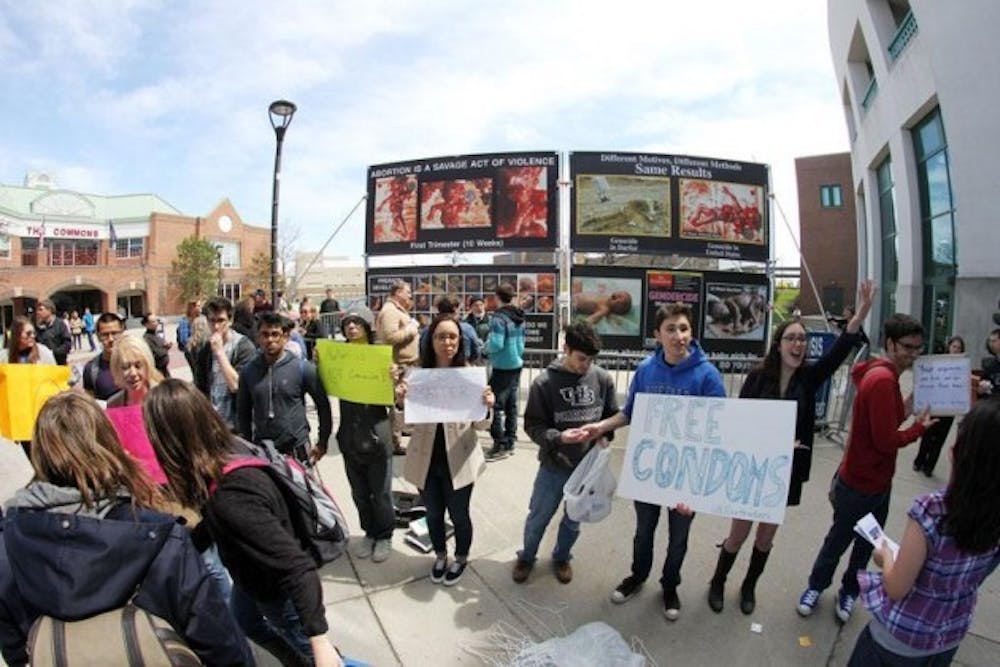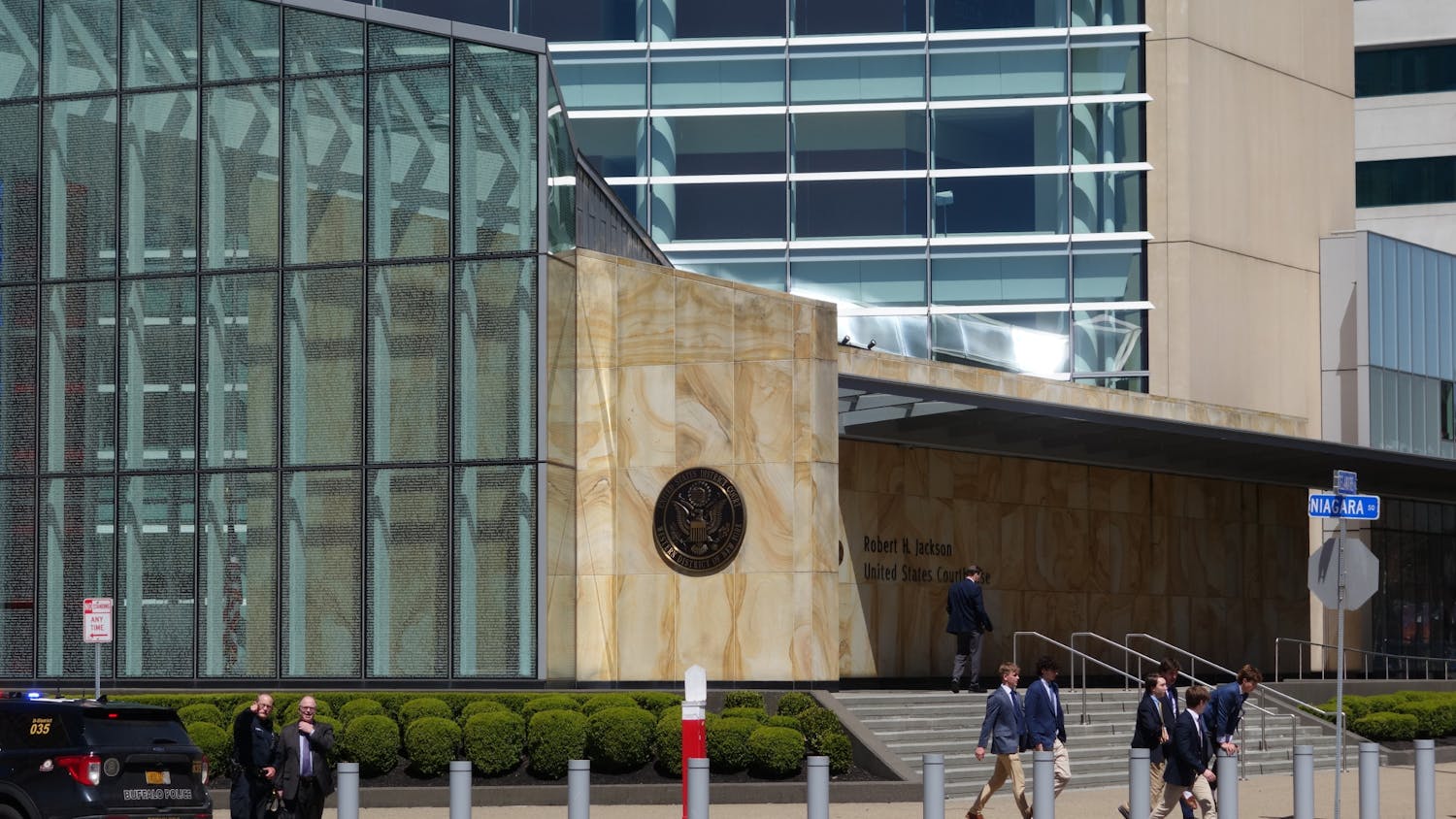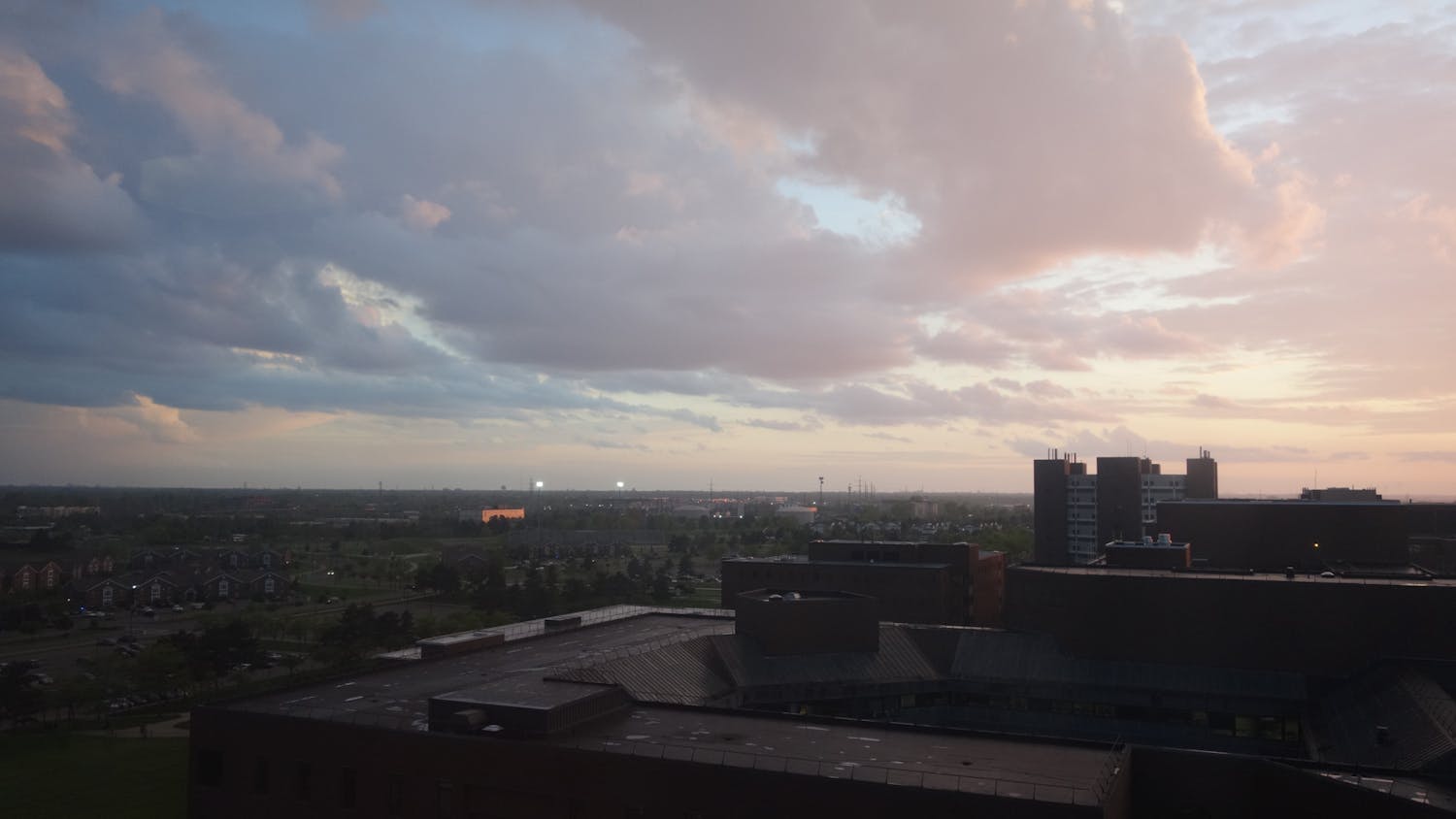Directly outside the Student Union on Monday and Tuesday, students were greeted with a question: "What do you think about human rights?" Members of the UB Students for Life handed out pamphlets with photographs of aborted fetuses, mirroring the billboard display behind them.
The Center for Bio-Ethical Reform, a national organization that is anti-abortion, was asked to plan the event with Students for Life. The Center's members refer to themselves as "Abortion Abolitionists." This is the second year the protest was held on UB's campus. Last year, a passionate debate took place around the scene, and many students held up sheets to block the billboards.
Matt Ramsey, a junior economics and mathematics major and the president of Students for Life, spent the last few months orchestrating the event. Ramsey said his club decided to bring the event back because they had the right to voice their opinions.
The pictures sparked counter protests as the afternoon continued Monday. Students were offended by an analogy found on one of the pictures, comparing the abortions that take place in America to genocide - many students described this as "disrespectful," especially because Monday was National Holocaust Remembrance Day.
Some students handed out condoms and chanted about their right to choose, while other groups were less serious and dressed up as wizards and protested the ban of Crystal Pepsi.
Emma Frieh, a junior sociology major in support of abortion rights, was among the protesters.
Frieh began protesting Monday morning, holding up a sign with "Abortion is not genocide" written on it. She said the abortion debate shouldn't be an argument and that women should have the right to choose. She believes the displays had no place on UB's campus.
"Free speech is important, but this isn't free speech. This is just disruptive and disrespectful to those who have had abortions, who have been raped and people who have actually gone through real genocide," she said. "My one friend said he can't go in and eat after seeing those things. And I saw earlier a girl walking to class and she started crying. I can only imagine why it upset her so much but to have someone effected like that, it's just unacceptable."
Christian Andzel, the 2012-13 Students for Life president, who graduated from UB in December with a degree in history and political science, was handing out pamphlets Tuesday afternoon. Under the pouring rain, he was among other volunteers in raincoats and plastic coverlets who approached students.
"We're out here to stand for human rights for all human beings," he said. "The more the slaughter of human beings, the more we are driven to stand out here - no matter the weather ... [They] want us to silence our voice. They want us to be secluded."
Andzel said the event had proven to be successful in producing public discourse. He felt they had successfully reached out to people in the "middle" - those who still had not decided their views on abortion.
This type of "insightful conversation," Ramsey said, is important to the protest.
"It really matters about how you treat the people," Ramsey said. "Two things we say are they are going to remember the pictures and how they were treated when they came here. How we come off as individuals, as pro-lifers and as pro-choicers, means a lot to how they will remember the experience of discussing abortion."
For Lily Ellis, however, the display was not a form of "insightful conversation." The freshman English major thought it was wrong for the university to allow the demonstration to take place on campus without the student body having a say in it.
Ellis, who is anti-abortion rights, said the display made her feel ashamed to be affiliated with that side of the issue. She thinks it is important for students' concerns to be heard but felt the displays were inappropriate, given upcoming exams and the fact that it was held on National Holocaust Remembrance Day.
"I don't think abortion is right, however, this is bull****," Ellis said. "The truck going around? We have a preschool on campus. Little children don't need to be exposed to this. There is so much wrong with this, I can't even begin."
Samantha Linnemann, the project manager and site coordinator of the Center, said the organization chooses college campuses because this age group is not only the most likely to have abortions, but is the future of policymaking and abortion law.
"College students are the future of America, the future politicians, future lawmakers and future voting citizens," Linnemann said.
In response to student criticism about the display occurring the same day as National Holocaust Remembrance Day, Linnemann said the organization did not realize the matching day. She also said the campus daycare was alerted prematurely about the displays to prepare families for the graphic imagery on campus.
For Linnemann, sharing the images is essential to the abortion debate.
"The images are disgusting because abortion is disgusting. If abortion should be legal, why should we not be able to see it?" Linnemann said. "Why would anyone be afraid to show it?"
Frieh disagreed.
"They have their own moral values, but I have my own as well," Frieh said.
email: news@ubspectrum.com





